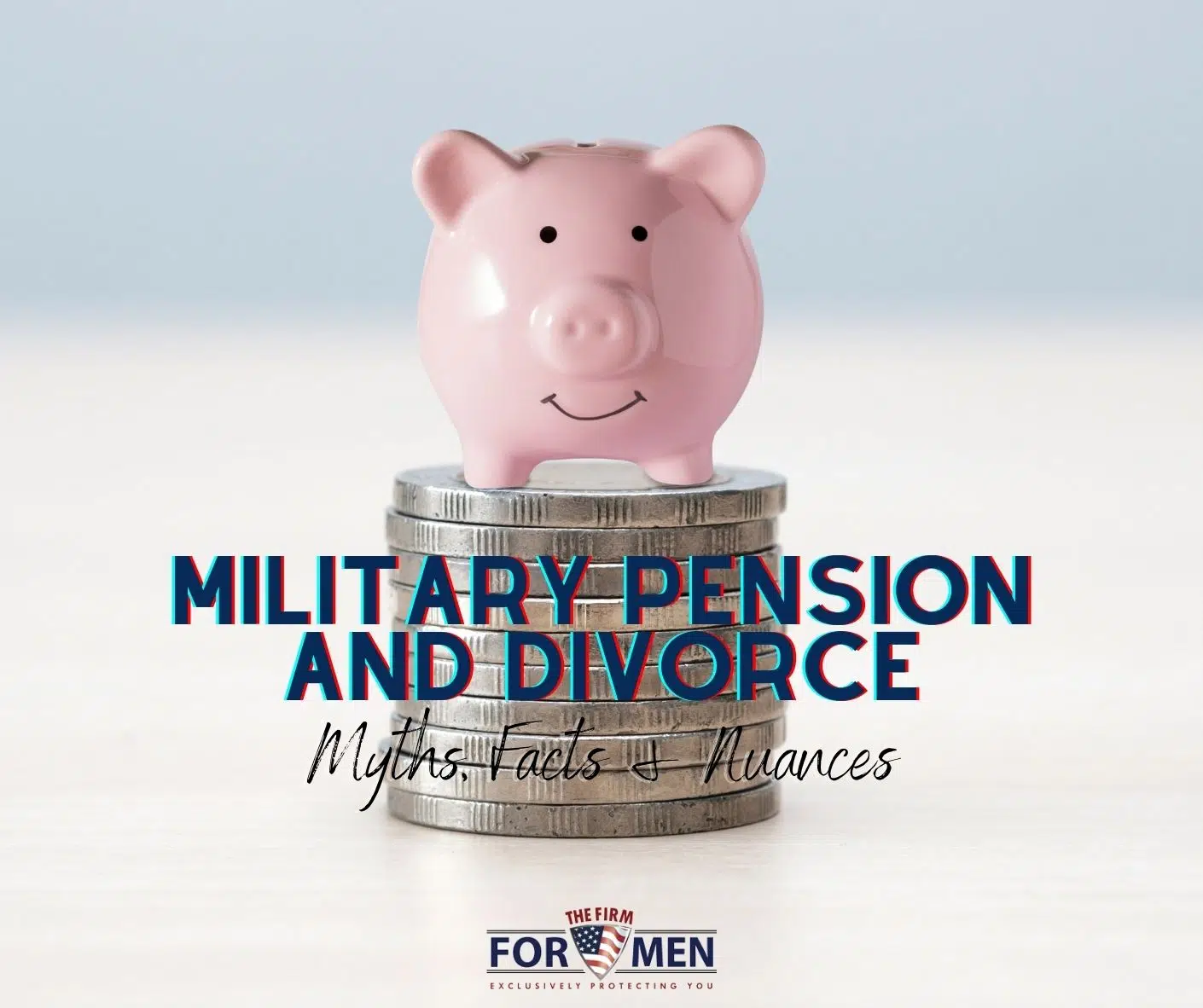This nation’s first military pensions gave our fighting soldiers not money, but land. According to the National Archives, on September 16, 1776, Congress passed a resolution promising up to 1,100 acres of “free land in the public domain to officers and soldiers who continued to serve during the Revolutionary War or, if they were killed, to their representatives or heirs.” Though only major generals received the maximum acreage, even a private got 100 acres. Today, military pensions are in cold, hard cash and are subject to equitable distribution in a military divorce.
Myths and the Military
We need to head off some of the many myths surrounding military pensions and divorce. One notion floating around the blogosphere is that your pension is not subject to equitable division in a divorce if your marriage lasted less than a decade.
In all 50 states your military pension is fair game for your spouse even if the two of you escaped your matrimonial bonds in under a year.
This 10-year fable arises from the mechanism of direct and indirect payments by the DoD, which can only pay your spouse directly if you two were married for 10 years and all those years overlapped your military service (the so-called 10/10 “rule”).
Your military pension is subject to the laws of the state in which the divorce suit is filed. In Virginia, your pension can be tapped in whatever way the Virginia judge overseeing your divorce dictates.
Equitable Distribution of Military Pension & Fractions
Another myth revolves around the overlap of military service and the length of your marriage. This gets into a formula called the “marital fraction,” and it is a genuine nightmare for attorneys representing servicemen. Inexperienced attorneys or lawyers unfamiliar with military pensions often very nearly destroy their client’s finances because of their mishandling of this fraction.
Say a gunnery sergeant — we’ll call him GySgt Harry Howitzer — has 25 years of service (300 months; that number matters) and a 12-year marriage to Harriet (née Huffnagel) that bridged the time from GySgt Harry Howitzer’s last six years of service and six years of GySgt Howitzer’s military retirement.
GySgt Harry’s marriage to Harriet overlapped GySgt Howitzer’s service by six years or 72 months (yup; it matters). The former Miss Huffnagel is not entitled to half of GySgt Howitzer’s pension, since the “marital fraction” of GySgt Harry Howitzer’s service time is 72/300, or only 24 percent. (And yes, we like saying “GySgt Harry Howitzer” almost as much as we like saying “Harriet Huffnagel”).
But please, do not take our authoritative word on the correct equitable distribution of a military pension! Consult the pages of the Defense Finance and Accounting Service’s (DFAS) own manual on the topic.
It’s More of a Grave Concern
Another misunderstanding about military pensions is their longevity. Some military members seem to think the pension split is temporary. It is not.
If your spouse is entitled to a share of your pension, that share continues until one of you dies. Your ex-spouse can remarry, and the pension checks will keep heading her way.
Uniform Services Former Spouses Protection Act (USFSPA)
If you served even one day in the military, you know how the services love their acronyms, like ADCOMSUBORDCOMPHIBSPAC (come on everybody, say it with us now, “Administrative Command, Amphibious Forces, Pacific Fleet Subordinate Command”).
But one ridiculously long acronym you should know is USFSPA, which stands for (and takes up just about as much room as) the Uniform Services Former Spouses Protection Act. If you thought the DFAS’s 12-page manual was great reading, you will simply love the nine pages of 10 U.S. Code § 1408, which spells out exactly how your military pension (and other benefits, such as health care and exchange privileges) is treated in divorce.
Okay, okay, you may not love it or even want to look at it but make absolutely certain your attorney handling your military divorce goes to bed reading the thing every night. It is the actual law that allows Virginia judges to select the terms, amounts, and limitations of equitable division of your military benefits.
When Does Virginia Have Jurisdiction?
Your divorce, like marital sex, should be consensual. We mentioned repeatedly that a Virginia state judge will preside over your divorce, and that authority is given through USFSPA. The law grants the state court jurisdiction over the military member based on one of three circumstances:
- Your residence (not your military posting) is within a Virginia court’s jurisdiction; or
- Your legal domicile is within the Virginia court’s jurisdictional boundaries; or
- You consent to give the Virginia court jurisdiction over your divorce
This means your divorce proceedings can continue even if you are shipped out to Guam from Hampton Roads. You need a sharp, attentive lawyer experienced in military divorce to work with you and the courts to keep the proceedings moving (or purposely choose to suspend them).
Call Our Virginia Beach Divorce Lawyers
At The Firm For Men, we understand the unique stresses and challenges faced by service members. Contact us today, or telephone our Virginia Beach office at (757) 383-9184, to allow us to assist you with your separation, divorce, or other family law matter. Our goals are simple: to zealously defend and protect Virginia’s men, their financial freedom, and their future happiness.

